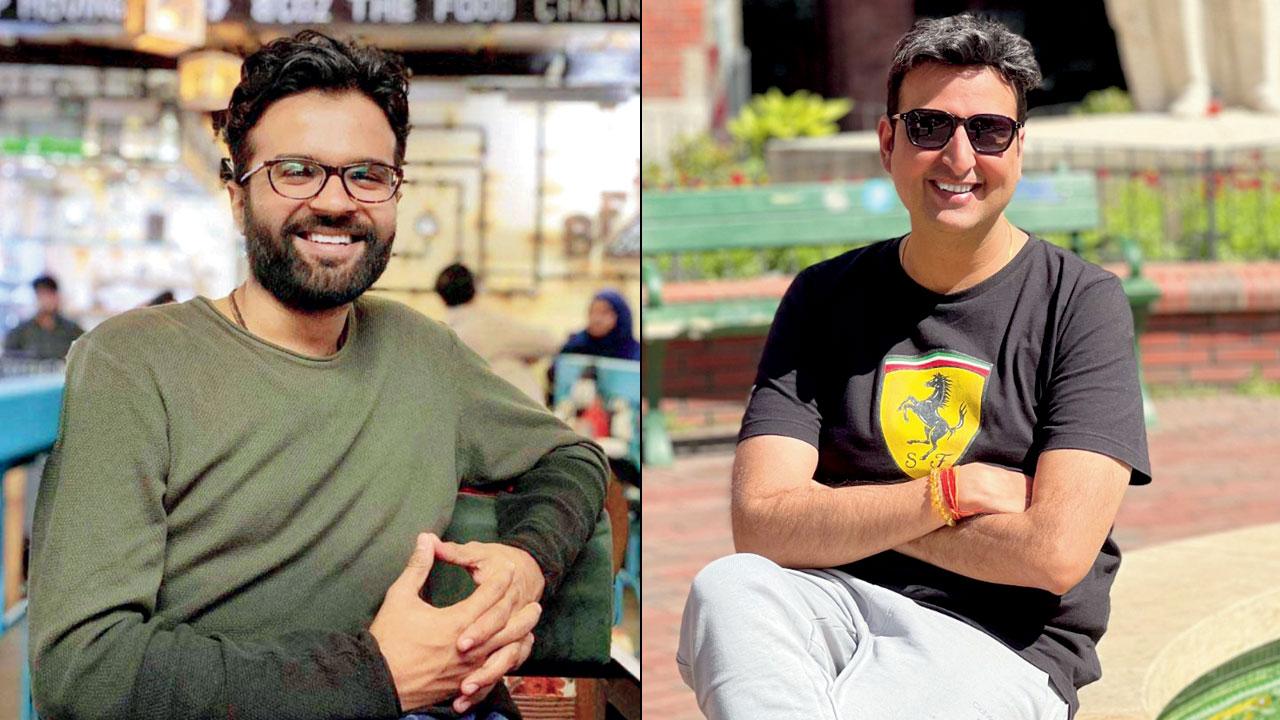From researching ancient texts to exploring karma, Asur writers Shukla and Khuman on how they wove in Indian mythology into the thriller

A still from Asur
There are no good or bad people, only bad circumstances. This central thought is seamlessly conveyed in the two seasons of Asur. On the surface, the JioCinema offering revolves around the cat-and-mouse chase between two forensic experts and a serial killer. But what sets it apart from many others in the genre is that it has Indian mythology at its heart, with the central parts essayed by Arshad Warsi, Barun Sobti and Vishesh Bansal inspired by mythological characters.
ADVERTISEMENT
Creator-showrunner-writer Gaurav Shukla, who has penned the latest season with Abhijeet Khuman, shares that he began writing Asur’s script in 2009 and struggled to find takers for his unique idea. “Although everyone liked the concept, no one wanted to make it into a film or series because they [were dissatisfied about] one hero being in jail and the other in captivity.” It was the need to tell an original story that pushed Shukla to set his story against the backdrop of an investigation of a serial killer. “The idea was to showcase a story rooted in India. That’s how we came up with the idea of having a killer with a mythological bent of mind,” he says.

Abhijeet Khuman and Gaurav Shukla
Creating a thriller with mythology as its foundation was not going to be easy. Shukla says that the initial idea was to base the story on other asurs, but during their extensive research, they chanced upon Kali and Kalki — while the former represents chaos and destruction, Kalki is a symbol of hope and redemption. “We realised that basing it on Kali would make the series more contemporary. We [could showcase] how Kali would come back in the kalyug to bring [a change in the order in the world]. The idea germinated from the fact that [some people with] strong belief in mythology try to align the Nakshatra [stars] to have a blessed child. That was the starting point.”
Khuman shares that their primary research on Kali and Kalki came from a few ancient texts. “We referred to Kalki Puran, Markandeya Puran, Adhyatma Upanishad, Vishnu Puran, Bhavishya Puran, Ashtavakra Gita, Katha Upanishad, and some portions were taken from Mahabharata and Rigveda as well. We concentrated on the parts where Kali’s genesis is mentioned. [Concepts taken from] the vedas and upanishads are accurate, but we didn’t study every part of it. There are millions of stories in those texts and it would become impossible to conclude it. Our focus was on Kali and Kalki.”
The conflict between the good and evil is a running theme in the series, depicted through Bansal’s character Shubh, who believes he is a reborn as Kali in kalyug and wants to compel Kalki for a duel. More importantly, it also depicts the far-reaching consequences of mental and physical abuse in one’s childhood. “It is Shubh’s transformation [after years of mental and physical abuse at the hand] of his father that led me to see the concept of Kali and Kalki,” says Shukla. The mythological story of how the gods cheated the demons to gain the nectar of immortality is one of the stories that shape Shubh’s belief system.
Khuman adds, “He justifies his actions by pointing out that no one [including gods] is devoid of evil thoughts and actions when it comes to their own selfish reasons.” Shukla interjects to say that Shubh views the world differently. “[His belief] is not stemming from mythology, nor did reading literature influence him. He was so evolved that all that knowledge let him see the world differently. According to him, if all the people in the world are good, why is there still chaos? So, maybe a change in order is necessary. It was his way to create equilibrium in society.”
In contrast to Shubh’s grey character are Warsi’s Dhananjay and Sobti’s Nikhil. Through them, the writers wanted to explore the ideas of karma and destiny. Shukla adds, “We wished to showcase both [thought processes] on karma — results are destined, followed by karma. If someone is failing, can we change it through karma? Or is he failing because he is destined to fail? Personally as a creator and showrunner, I believed in Shubh’s philosophy [not his actions].”
As per Hindu mythology
>> Kali, who is the Hindu goddess of ultimate power, time, and change, is born of war and wrath, symbolising the vicious aspects of death and destruction.
>> Kalki is the tenth and final incarnation of the god Vishnu. The deity is described to appear in order to end the Kali Yuga, one of the four periods in the cycle of existence.
>> Karma is a concept of action, deed, and its consequences. In Indian religions, the term refers to a principle of cause and effect, often called the principle of karma, wherein intent and actions of an individual influence his/her future or fate.
 Subscribe today by clicking the link and stay updated with the latest news!" Click here!
Subscribe today by clicking the link and stay updated with the latest news!" Click here!







